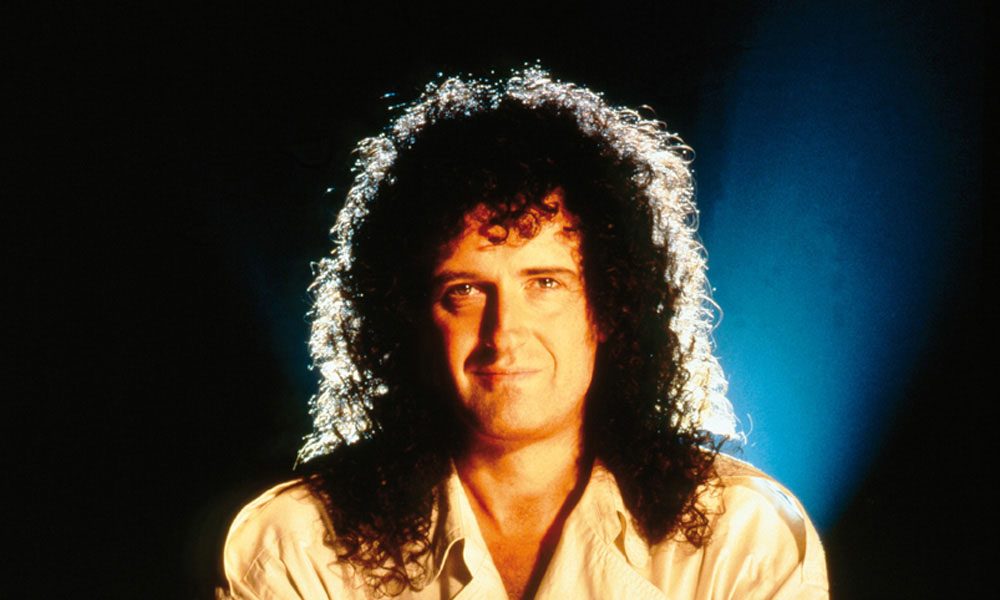Watch The Remastered Video For Brian May’s Tender ‘Too Much Love Will Kill You’
The song also features on the upcoming reissue of May’s landmark solo album, ‘Back To The Light’, out on August 6.

With its vulnerable vocal, tender keys, understated acoustic guitar solo and indelible melody, “Too Much Love Will Kill You” is a standout from Brian May’s 1992 solo album, Back To The Light. May refers to it as, “in a way, the most important song I ever wrote.”
Ushering in the remastered re-release of the album on August 6, the track is made available again July 30. It arrives with a newly remastered video today as well.
Originally emerging as a single on August 24, 1992, “Too Much Love Will Kill You” earned May a solo hit when it reached No 5 in the UK Singles Chart. Ahead of that release, a visibly moved and note-perfect May previewed it before some 72,000 fans at Wembley Stadium’s Freddie Mercury Tribute Concert in April 1992, perhaps cementing a misunderstanding about its origins.
“My excuse for singing it is, I think, it’s just the best thing I have to offer”, said May, by way of his on-stage introduction to the song. His reason for singing it was not, as was often thought, that he wrote the song about the legendary Queen singer, who had died in 1991. The song itself stretches back to 1986-7, when Brian wrote it with two friends, songwriters Elizabeth Lamers and Frank Musker. May was in Los Angeles at the time, “far away from home” and in a “tangled state of mind”, trying to find some release from a period of profound personal upheaval.
As Brian explains: “Too Much Love Will Kill You” is a big, long story and the version that you hear on Back to the Light is the original. It has the original keyboard that I played when we were writing the song. Me and Frank Musker, and his lady friend at the time, were in a room and it was like a therapy session for me. I was just pouring out all these words because I felt like I was trapped. I was in a place that I could never, ever get out of. All I could do is write about it. This is the only song I wrote in that probably nine months or a year period.”
In writing about it, May laid everything on the line. “The pain will make you crazy”, he sings. And although his lyrics stem from a period in his life, it is that very specific honesty that lends them a universal power. Certainly, for Brian, the words hold their resonance years on.
“The things that I struggle with are still there. ‘Too Much Love Will Kill You’ is a chronicle of what’s actually buried deepest inside me. Every word on it, as I listen to it now, every word counts for me. Every word I would still stand by. It’s exactly how I am inside. I say ‘am’ in the present tense because I’ve come to the realization that I haven’t changed that much. It’s the one opportunity I had in my life to tell it as I saw it. In a way, it’s the most important song I ever wrote because it does sum up life’s journey for me.”
Many Queen fans took it to heart as a song connected to Freddie. Meanwhile, Queen themselves took it to heart. A bigger version was recorded in 1989 with Freddie’s vocal, which would later surface on Made In Heaven, the Queen album completed after Mercury’s death and released in 1995. Released as a single the following year, Queen’s recording earned May’s tender confessional an Ivor Novello Award for Best Song Musically and Lyrically, a testimony to the abiding power of a song strong enough to grow beyond its origins and stand on its own legs.
“I loved working with Freddie to do that vocal. We were aware that the song was becoming something different, and it meant something different. We were all aware of it. We obviously knew Freddie’s days were probably limited barring a miracle. So the song started to feel like something different. And we didn’t shy away from making it very big, very Queen-like. And I like it.
“But if you want to hear what the song originally had poured into it, with the blood, sweat, and tears of my life, then that’s this version.”
Out of the Light, the companion release available in the Back to the Light box set and on the 2CD and digital formats, features two alternative readings, a guitar version and a live version recorded at The Palace Theatre, Los Angeles, April 6, 1993.












